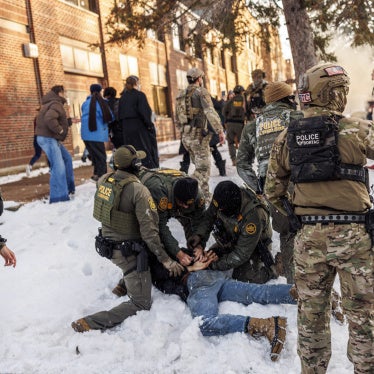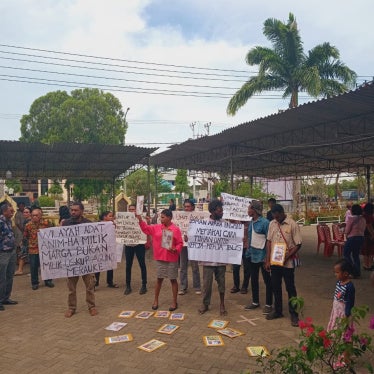The armed men barged into Jamaluddin's home late one evening, beating the elderly man unconscious before going after his wife and daughter. The daughter was raped three times. Later, the soldiers raped her mother five times. This incident, while it didn't happen in Iraq, should worry the United States if it decides to go to war there.
This incident, while it didn't happen in Iraq, should worry the United States if it decides to go to war there. The attack happened last December near Mazar-e-Sharif, Afghanistan. It was one of hundreds of killings, rapes, beatings and lootings that Human Rights Watch colleagues and I documented. What is particularly horrifying is that all of these crimes were committed not by the Taliban or al-Qaeda, but by local allies of the United States: troops of the Northern Alliance.
War crimes committed by allies and foes during U.S. military interventions are an almost regular occurrence, as they are in most wars around the world. Former Yugoslav leader Slobodan Milosevic embarked on a massive killing spree against Kosovar Albanians when NATO began bombing. Afterward, Albanian militants began killing Serbian and Roma civilians suspected of collaborating with Milosevic, even while NATO was embracing these same militants as its partners in the new Kosovo.
The potential conflict in Iraq again raises the danger that war crimes will be committed on a massive scale by both sides as they have been in the past — by Saddam Hussein and by the opposition Shiites and Kurds.
That's why we are right to ask at this moment: Can the United States do more to stop its foes and its allies from committing war crimes? Absolutely. The United States must make it clear that friend or foe who commits serious abuses during a war in Iraq will be brought to justice. And then it must carry through on that threat.
Afghanistan example
In Afghanistan, for example, strong messages from the U.S. military to the Northern Alliance that serious abuses would not be tolerated had an impact. Territory changed hands without the massive massacres of civilians that had occurred twice in the 1990s.
But after the fighting subsided, the Northern Alliance gambled that the United States and United Nations would not follow up their threats with actual justice, and they were right. Not a single Northern Alliance soldier has been prosecuted despite the many serious abuses we documented.
The United States' failure to carry through on accountability in Afghanistan sends a dangerous message to the belligerents in Iraq. While the U.S. government's commitment to building a case against Saddam and members of his inner circle is an important step, to deter further atrocities, it must also pro mise to prosecute any war crimes committed by the opposition.
Best approach
Justice can be pursued in several ways, but it must respect the rights of the defendant and operate transparently so that the victims can witness justice being done. The military tribunals established by President Bush do not meet these basic principles. As in the Balkans, some form of ad-hoc international tribunal to try war criminals would have greater credibility and could work within an established framework of international criminal law. The ad-hoc Yugoslav tribunal, for example, has proved its impartiality by investigating and prosecuting abuses committed by all sides, exactly what may be needed in Iraq.
In the long run, the United States should stop its self-absorbed opposition and support the International Criminal Court, which will come into being next spring and has the support of nearly 140 nations worldwide, including most of America's closest allies. That court is the most appropriate vehicle for ending impunity for war crimes.
Even potential war criminals are calculating individuals. Knowing that they can get away with war crimes significantly affects their decisions. The rapists and murderers of the next conflict we face may very well reconsider their actions if prosecution is a realistic possibility down the line, rather than a comfortable retirement in the south of France. Unfortunately, U.S. actions to date have done little to give warlords around the world sleepless nights.








